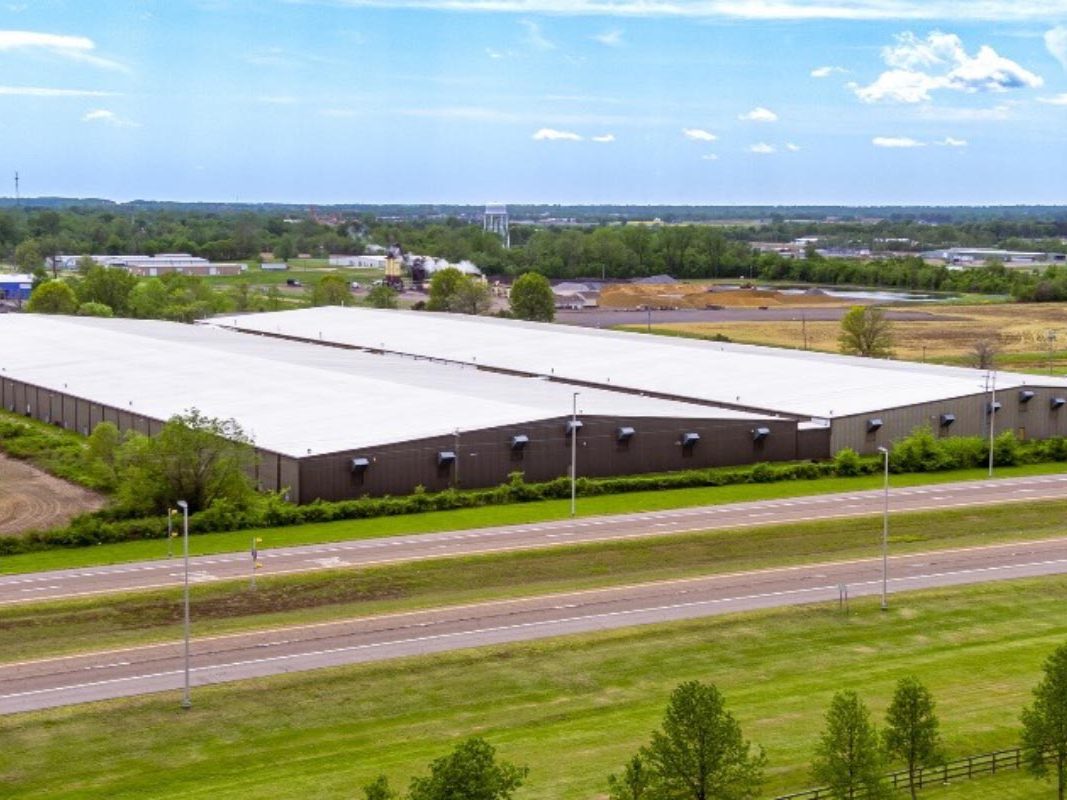Phoenix Investors Buys Tennessee Industrial Asset
This acquisition brings the firm's portfolio to more than 78 million square feet nationwide.

Phoenix Investors has acquired 600 E. Sherwood Drive, an industrial asset in Union City, Tenn. The property, measuring nearly 411,500 square feet, was previously owned by MVP Group International. The purchase puts Phoenix’s portfolio at more than 78 million square feet nationwide.
The building is on 34 acres and features nearly 398,000 square feet of warehouse space, 13,500 square feet of office space and a 2,200-square-foot break room. Originally developed in 1985 and renovated as recently as 1995, the warehouse also includes 18 dock doors, clear heights up to 28 feet, two compressors and an extensive racking system.
READ ALSO: E-Commerce Growth Revives Industrial Market
Located in Obion County on U.S. Route 51, the property is zoned for both Planned Industrial and Intermediate Business. Union City is in western Tennessee near the border with Kentucky. The largest nearby metro markets are Nashville, Memphis and St. Louis.
Phoenix intends to substantially improve the asset, with a goal of attracting industrial users to the area. The plan is similar to what the company is undertaking, and has undertaken, elsewhere.
In August, Phoenix acquired three industrial properties and a solar farm in Nashville, Ark., measuring more than 815,000 square feet, with plans for capital improvement. Husqvarna, which makes lawn mowers, leaf blowers, chainsaws and other machines, sold the assets.
One recently completed repurposing by Phoenix was of a former Maytag factory in Galesburg, Ill. A company that produces meat snacks inked a lease for 179,000 square feet at that building.
Domestic manufacturing spikes in uncertain times
Overall, demand for U.S. manufacturing facilities has been increasing in recent years, driven by reshoring and the shortening of supply chains in the wake of the disruptions caused by the pandemic, as well as heightened and ongoing international tensions, especially between the U.S. and China. The trend has legs, reports The Boston Consulting Group.
More than 90 percent of North American manufacturing companies have moved some of their production or supply chain since the late 2010s, BCG reported in 2023. Half of those reported shifted more than 20 percent of their manufacturing and supply chain spending.
Companies need to rethink their manufacturing and distribution networks, build capabilities in new geographies, and establish new relationships across supplier ecosystems to enhance their competitive advantage, according to Ravi Srivastava, global leader of BCG’s Operations practice and a coauthor of the report.







You must be logged in to post a comment.